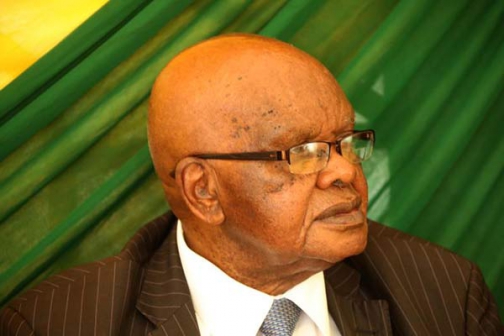×
The Standard e-Paper
Stay Informed, Even Offline

Dressed in his favourite black pinstripe suit, Prof Bethwel Allan Ogot is still an imposing figure, even though he walks with a slight limp as he conducts his guests around his magnificent library.
Over time, Prof Ogot has built a prized collection of books, archives and artifacts and he is pleased about it.